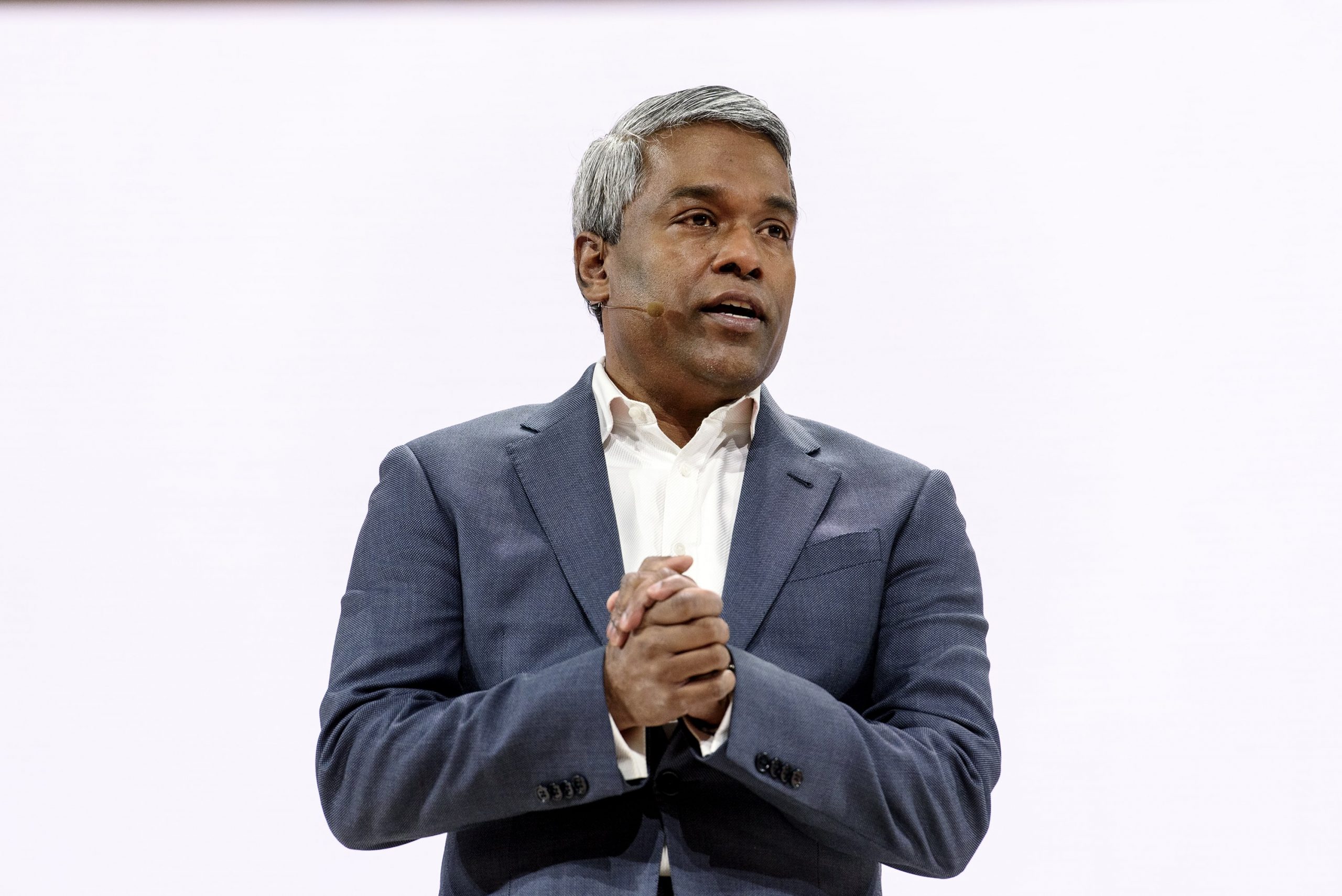Thomas Kurian, CEO of Alphabet’s Google Cloud, speaks at the Google Cloud Next conference in San Francisco on April 9, 2019.
Michael Short | Bloomberg | Getty Images
Google Cloud CEO Thomas Kurian told employees Friday that it received confirmation from the U.S. Customs and Border Patrol that its technology won’t be used for immigration enforcement at the border, including for a “virtual wall.”
Kurian spoke to employees in a Friday all-hands meeting for the Cloud group known as The Weather Report, where he addressed a question from employees about a recent government contract reported by The Intercept. The report said that Google’s AI technology might be used in conjunction with technology from start-up Anduril, which is working on technology for a “virtual wall” at the U.S. border with Mexico.
Kurian strongly denied that aspect of the report.
“As we have stated in the past, we are not working on any projects associated with immigration enforcement at the southern border,” Kurian told employees Friday, according to a transcript of the meeting from a participant. Google confirmed the accuracy of the transcript, but declined further comment.
“While the statement of work includes a lengthy list of programs the agency may be testing, we have spoken directly with Customs and Border Patrol and they have confirmed that they are not testing our products for those purposes.”
Google employees have been outspoken about existing and potential government contracts — especially those of Trump-led immigration agencies and those with potential uses of war. Last year, Google employees signed a petition asking company leaders to declare they won’t work with U.S. immigration and border control agencies, citing mistreatment of asylum seekers and refugees.
And in 2018, Google ended a government contract dubbed Project Maven — which helped the government analyze and interpret drone videos via artificial intelligence — after several thousand employees signed a petition and dozens resigned. That also led to the company establishing what it calls “AI Principles” for both Google and its Google Cloud unit.
Employees aired their most recent concerns amid the August cloud proposal with the U.S. Customs and Border Patrol that states the Google Cloud Platform could contribute its artificial intelligence technology such as machine learning and natural language processing. The “statement of work” document showed the technology could be used in coordination with other agencies, including with drone camera company Anduril, which has a project for a “virtual border wall.”
In addition to Kurian’s statements, a person close to the project said the company is not working with Anduril and never had plans to.
Kurian told employees Friday the Border Patrol’s potential testing may include dozens of congruent companies and that would be likely applied for functions like document scanning and that any “custom” work would need to be finalized alongside its “AI principles.”
“The testing that they are doing might include systems to help with customer fraud, to detect drug trafficking, and scanning and translating travel documents,” Kurian continued in the live-streamed meeting. “As with any project, the use of our services will be in accordance with our terms of service and acceptable use policy, and any custom work would have to go through our AI principles review.”
Anduril was founded by Palmer Luckey, who also co-founded virtual reality company Oculus, which Facebook acquired in 2014. Luckey says Facebook fired him in 2017 for what he once described to CNBC as “no reason at all,” amid controversy surrounding his political contributions and financial support of far-right groups and internet trolls.
Google’s cloud business is an increasing area of focus for Google and parent company Alphabet. During its Q3 earnings report yesterday, Alphabet CEO Sundar Pichai said it would begin reporting Google Cloud’s operating income starting next quarter.
“With the segmentation, you will additionally see information about the scale of our investment, which will help gauge the progress we are making on the multi-year path ahead to create sustainable value,” Pichai said.
